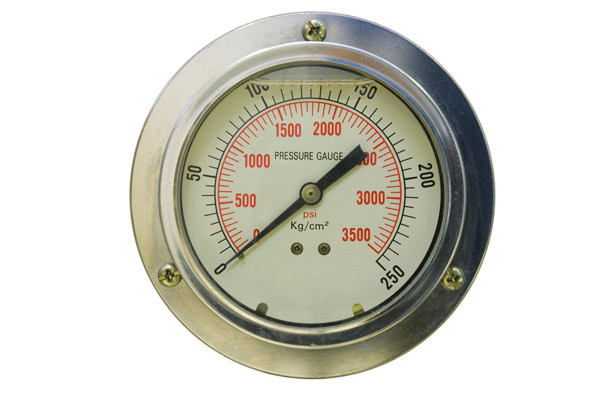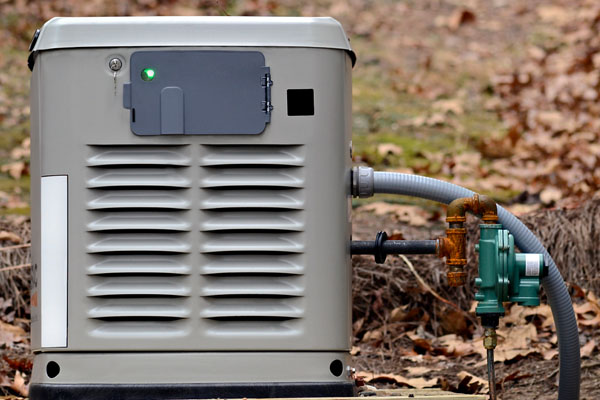Standby generators offer a dependable solution for power outages, but they are not immune to occasional issues. A frequent problem is their failure to start correctly. This article outlines ten typical reasons why a generator won’t start, identifying various factors that could lead to such failures. These include challenges related to fuel, battery malfunctions, defective parts, and lack of regular maintenance.
Top 10 Reasons Your Standby Generator Won’t Start
Here are the top ten reasons why your standby generator won’t start:
1. Fuel Challenges

The engine of a generator relies on fuel to produce electricity. Common fuel-related problems affecting standby generators include:
- Low Fuel: Not having enough fuel can prevent the generator from starting or cause it to stop during use. To ensure continuous power, keep the fuel tank adequately filled and regularly check and refill it, particularly during long outages.
- Poor Fuel Quality: The performance of your generator is heavily influenced by fuel quality. Using contaminated or substandard fuel can clog filters, affect the carburetor, and damage the engine. Use only high-grade fuel recommended by the manufacturer, adhering to their guidelines on fuel types and additives.
- Fuel System Leaks: Leaks in the fuel system can be due to damaged lines, improper connections, or worn-out seals. These leaks are not just wasteful but also dangerous, posing risks of fire or explosion. Routine inspections to identify and fix leaks are vital. Replace compromised fuel lines, secure connections, and renew seals to ensure safe and efficient generator operation.
2. Battery Failure
A generator’s battery operates by converting chemical energy into electrical energy through an electrochemical reaction, serving as a standalone power source that supplies the initial energy required for the generator to function. However, battery failure is a common issue, often due to factors such as the battery’s age, poor maintenance practices, and exposure to extreme temperatures. These elements can significantly impact the battery’s performance and reliability.
3. Control Panel Issues

The control panel of a generator is a crucial component, offering a single point for overseeing and managing different functions. This panel facilitates starting and stopping the generator, tracking voltage, frequency, and additional electrical metrics, along with adjusting system configurations. It includes vital safety elements like circuit breakers and alerts. As the operational hub, the control panel plays a key role in ensuring the generator is utilized efficiently according to power requirements.
Challenges that might arise in control panel settings and functionality include:
- Incorrect configuration
- Misinterpretation of readings
- Improper adjustment of controls
4. Blocked Fuel Lines
Fuel lines are responsible for transporting fuel from the tank to the engine, ensuring a stable and continuous flow that is crucial for engine combustion. The efficiency of these lines is essential in maintaining optimal generator performance and a consistent power supply.
Clogs in the fuel lines can arise from several sources, such as sediment, debris, or an accumulation of contaminants. These obstructions impede fuel flow, causing a deficiency in the fuel reaching the engine. Consequently, this can lead to a decrease in generator efficiency, engine misfires, fluctuations in power, or in severe cases, total engine shutdown.
5. Faulty Spark Plugs
Spark plugs are vital for igniting the fuel-air mix in engine cylinders, creating a spark that starts combustion, essential for power and electricity generation.
Typical issues with spark plugs include fouling, wear, and incorrect gap settings. Fouling from deposits can weaken the spark, while wear and an improper gap may cause misfires or ignition failures.
6. Air Filter Issues
Air filters play a crucial role in keeping dirt, debris, and contaminants out of the combustion chamber, ensuring clean air intake to protect the engine and maintain its efficiency.
However, certain issues with air filters can prevent a generator from starting:
- Clogging: The filter may become blocked with dirt or debris, limiting airflow to the engine.
- Dirt Accumulation: An excessive buildup of dirt can reduce the filter’s ability to clean incoming air.
- Damage: Filters with holes or tears might let unfiltered air enter the engine, compromising its integrity.
These complications lead to an inadequate air supply for combustion, making it difficult to start the generator.
7. Coolant Levels
Coolant is essential for maintaining the engine’s temperature, absorbing heat from combustion, and averting overheating. Efficient circulation of coolant is crucial for peak engine performance, safeguarding engine parts, and extending the generator’s life.
However, coolant level issues can disrupt generator functioning. Too little coolant might cause engine overheating, damaging components, reducing performance, and potentially leading to engine breakdown. On the other hand, excessively high coolant levels can create pressure buildup, increasing the risk of coolant leaks.
8. Outdated Software

In modern generators, software is key, overseeing operations such as monitoring system parameters, regulating power output, managing load distribution, and implementing safety protocols. It facilitates remote monitoring, diagnostics, and data analysis, boosting efficiency and ease of use. However, outdated software can lead to starting failures, communication issues with engine parts, and lack the updates needed for optimal performance.
9. Starter Motor Failure
The starter motor is crucial in beginning the engine’s combustion process. It draws electric power from the battery to turn the flywheel at high speeds. This rotation generates the momentum required for the engine to start, ultimately enabling the generator to produce electrical power.
Indicators of motor failure include:
- Clicking sounds when starting
- Grinding noise
- No response when the ignition is turned
Starter motor failure can arise from various issues, such as worn-out brushes, solenoid problems, electrical faults, or mechanical breakdowns. Contributing factors include regular wear and tear, inadequate maintenance, and issues within the electrical system.
10. Poor Maintenance
Ensuring regular maintenance is essential for a generator’s reliable and efficient functioning. It allows for early detection and resolution of issues, minimizing the likelihood of breakdowns when needed most, prolonging the generator’s lifespan, enhancing fuel efficiency, and maintaining safety for both the generator and the user.
Lack of maintenance can result in generator start failure as unresolved problems accumulate and intensify. Neglected elements such as spark plugs, fuel filters, or batteries may degrade, leading to poor combustion or insufficient power supply.
Tips for Troubleshooting and Preventing Generator Failures

Early detection of problems can avert future malfunctions. For effective troubleshooting and prevention of generator failures, consider these guidelines:
- Maintenance Checks: Perform routine maintenance checks like inspecting fuel and air filters, monitoring fluid levels, and battery testing. Clean or replace parts when necessary.
- Ventilation: Ensure good ventilation and store the generator in a moisture-free environment.
- Load Distribution: Prevent generator overload by practicing balanced load distribution.
- Professional Service: Arrange for regular professional servicing and follow the manufacturer’s recommendations for maintenance schedules and methods.
Conclusion
Several factors can lead to a standby generator’s failure to start. Regular maintenance, routine inspections, and prompt issue resolution are crucial for its reliability. Keeping up with these practices ensures your generator is ready for use during emergencies, offering a dependable backup power source and peace of mind.
Call Tevis Energy For All Of Your Standby Generator Needs
Tevis Energy is a leading generator installation services provider throughout central Maryland and southern Pennsylvania. Aside from backup generator installation, we also offer generator maintenance, repair, and replacement services. We only have the best service contractors on staff, and they are well-trained in the most advanced generator techniques and methods. Call or contact us online today to know more about whole-house generator installation and services. Our industry experts are ready to answer all your generator questions. We offer free, in-home estimates. Call Tevis Energy today!
You can click here to contact us now or call us at (410) 876-6800 to find out more! Click the link to view our service area.

Related Articles:
